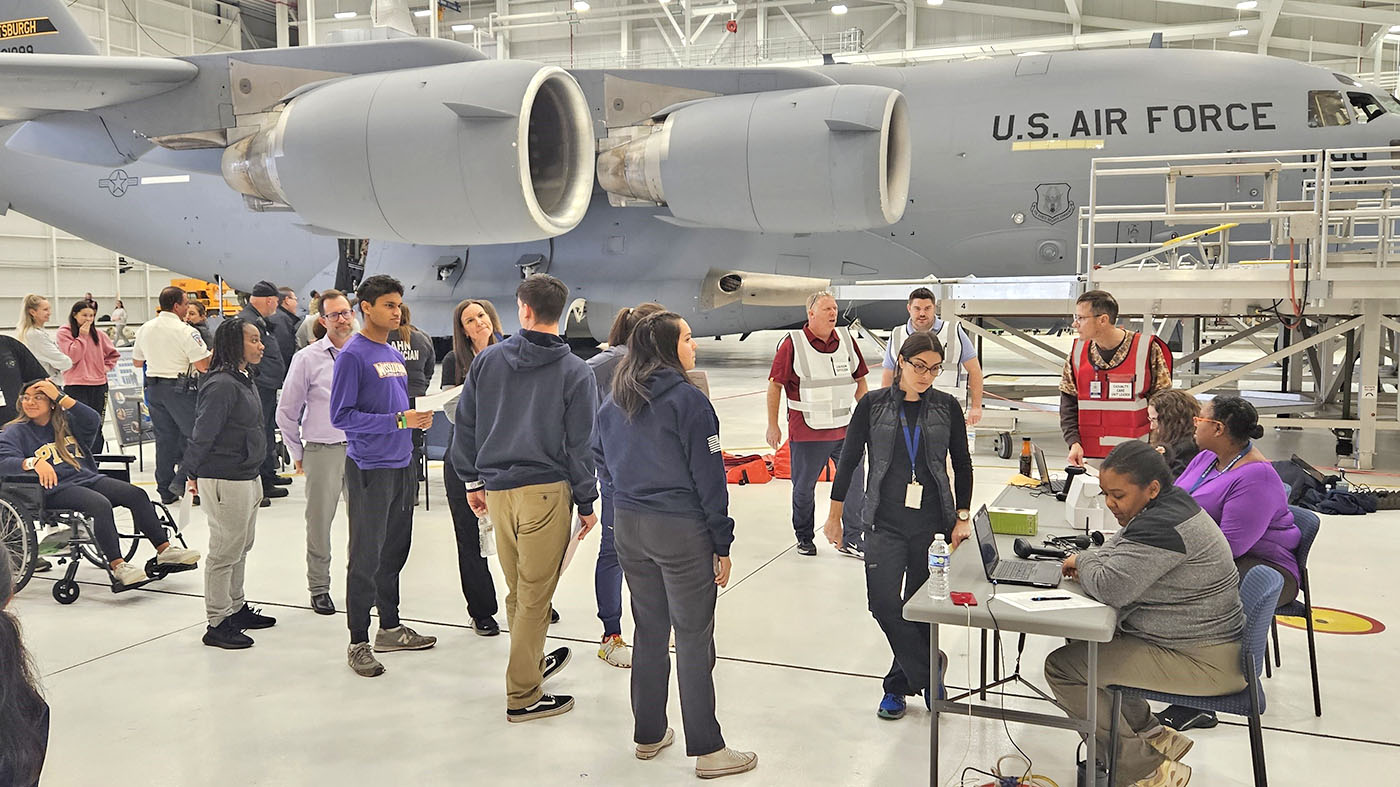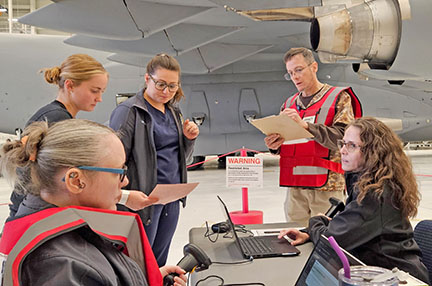Pittsburgh VA teamed up with the 911th Airlift Wing and local, state and federal partners in November to practice the region’s ability to relocate hospitalized patients to unaffected regions during presidentially declared disasters and public health emergencies.
Part of the Department of Health and Human Services, the National Disaster Medical System supports federal agencies in managing and coordinating the federal medical response to major emergencies and federally declared disasters. They can be activated for natural disasters, major transportation accidents, technological disasters and acts of terrorism.
As a test of the National Disaster Medical System (NDMS), Operation Pegasus Stride 2024 simulated the 911th AW airlifting 35 patients from hospitals in the New Jersey area to Pittsburgh following a massive hurricane on the East Coast. With the help of partner agencies, Pittsburgh staff received, assessed and tracked the patients for ground transport via ambulance to regional civilian hospitals.
“Our role was to move current inpatients in an impacted disaster area to an area that is unaffected so hospitals in the disaster area could provide the necessary care and resources for people in need,” said David Kaczmarek, interim area emergency manager.
Moving patients onto waiting ambulances
For the exercise, 911th airmen escorted patients who were portrayed by ROTC students off a C-17 Globemaster III aircraft and into the care of Pittsburgh VA and Pennsylvania Special Medical Response Team (PA SMRT) physicians and nurses. Chaplains, social workers, mental health professionals and medical support assistants joined their civilian counterparts in moving the patients through reception, reassessment, patient tracking and onto waiting ambulances for transport to area hospitals.
Pittsburgh VA is one of 62 Federal Coordination Centers (FCC) located throughout the U.S. It assists with coordinating the evacuation and placement of patients. Kaczmarek, who also serves as the Pittsburgh area’s interim FCC coordinator, said the exercise included over 125 volunteers from Pittsburgh VA, the 911th AW, university and college ROTC programs, Red Cross, PA SMRT, ambulance providers, medical care facilities and Allegheny County emergency services.
“The key to a good response is practice, practice, practice.”
Joining 38 volunteers on site for the exercise was Pittsburgh VA’s Prachi Asher, deputy director, and Robert Kling, associate director. The exercise ensures Pittsburgh VA and its partner agencies are prepared to work together in the event of an actual disaster or emergency. “The key to a good disaster response is practice, practice, practice. They are perfecting their response and their skills,” Asher said.
Emergency Department Physician Dr. Francesca McQueen said the exercise allowed her to refine her triage and team-building skills. ED Registered Nurse Earlene “Dawn” Rafferty said it helped to prepare her for a real-world disaster response. “Knowledge is power. The more I know, the more prepared I am,” she shared.
According to Kling, Pittsburgh VA will use lessons learned during Pegasus Pride to improve its response for the next exercise or real-world event.
Topics in this story
More Stories
From one battle to the next, including four types of cancers, Eliot Winokur’s resilience remains unshaken.
As severe weather threatened Mississippi, local news warned of a dangerous outbreak of tornadoes. A VA nurse stepped up.
Dorothy “Pat” Rudd, 103, World War II Navy Veteran, has lived a life of service, pioneering the way for women in the military.






